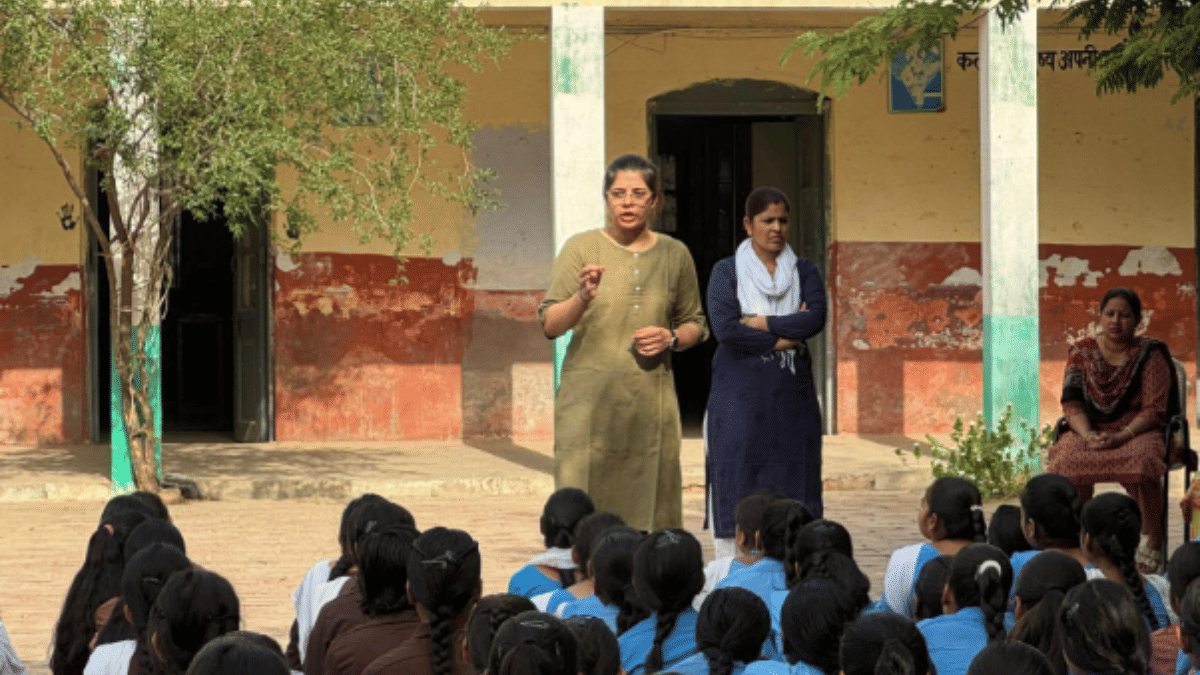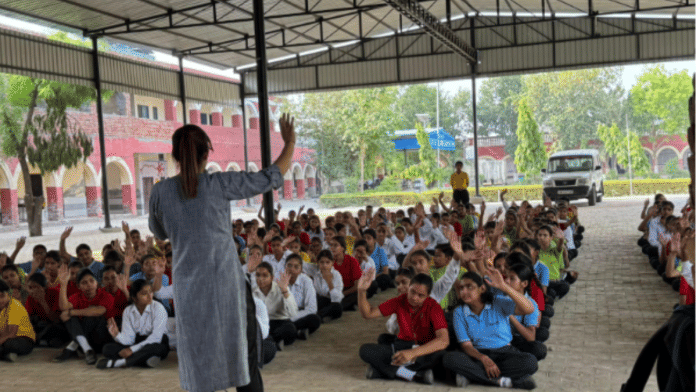Thank you dear subscribers, we are overwhelmed with your response.
Your Turn is a unique section from ThePrint featuring points of view from its subscribers. If you are a subscriber, have a point of view, please send it to us. If not, do subscribe here: https://theprint.in/subscribe/
Every time I speak about the Protection of Children from Sexual Offences (POCSO) Act, I carry with me the burden of countless stories—stories that should have been addressed long ago but continue to remain buried beneath societal silence and systemic inaction. These are not just statistics or headlines. They are real lives interrupted, futures derailed, and childhoods stolen.
The very individuals who need the most protection often find themselves with none. Caught in the web of social stigma and exhausting legal proceedings, many victims and their families choose silence—not because they don’t seek justice, but because the path to justice is uncertain.
A Girl’s Misery, A Society’s Apathy
Why is it that when a girl dares to speak out, society is quick to question her character instead of someone else’s actions? Why are we conditioned to stay silent, and when we do find the courage to speak, labelled as “too outspoken” to have been victimized in the first place?
It doesn’t matter whose story it is—whether it’s the girl next door, or the person staring back at you in the mirror. Sadly, it matters the least when it is the person in the mirror. Because acknowledging that truth demands confronting the uncomfortable—within families, institutions, and ourselves.
Many stories of abuse begin at home. Sometimes, the family is the beginning. Other times, it becomes family (the forced one). Consider the case of a 13-year-old girl who bravely reported sexual harassment by her father’s friend. Her courage was met with betrayal when her own father refused to take action. The silence of a parent not only invalidates the pain but fuels the cycle.
A Loop No One Wants to Break
This is not the failure of one individual or one institution—it is a collective failure. It is a generation-wide silence and, more often than not, a gender-specific truth. Yes, there are discussions around misuse of the laws by women, but such narratives must not overshadow the reality faced by the majority—especially girls. The very same girls when they become women, they use or misuse the law is an unanswered question but quickly judged.
Women have been conditioned over generations to normalize pain, tolerate abuse, and internalize shame. If one digs deep enough, one will find a legacy of generational abuse—trauma handed down to daughters, often disguised as tradition, or family honor.
No, not all women are saints. Yes, some do misuse the law. But those few must not be used as a shield to ignore the widespread abuse that most women and girls endure. We are the same society that once practiced Sati, gained independence in 1947, and adopted the Constitution in 1950—but only began enacting significant women-centric laws as recently as 2008. We are catching up, slowly and painfully. But how are we catching up, by turning blind eye?
POCSO: A Ray of Hope, Yet Far From Enough
Thankfully, the POCSO Act does recognize the vulnerability of both girls and boys. It is a step in the right direction. Little boys, too, find protection under this law—an acknowledgment that sexual abuse does not discriminate by gender.
However, even with such laws in place, loopholes, delays, and a lack of sensitivity in law enforcement often leave victims retraumatized. A recent Supreme Court ruling declined to sentence a man under POCSO, despite evidence of abuse. In the Court’s own words, “the victim is the worst sufferer.” This statement, though honest, also reflects the tragic reality: the law often acknowledges pain without alleviating it.
Changing the Narrative
Every voice raised in protest, every child protected, every family that chooses to believe and support their child, brings us closer to a world where safety and dignity are not privileges, but rights.
We must unlearn silence. We must teach our children—both boys and girls—that their bodies are their own, that no one has the right to touch or harm them, and that if they speak, they will be heard and believed.
We must also teach adults—to listen, to believe, to act. Families must become safe spaces, not breeding grounds for silence. Schools must incorporate robust child protection programs. Police, legal authorities, and medical personnel must be trained not just in procedure, but in empathy.
The Journey Ahead
This is a long journey, demanding unwavering commitment, compassion, and courage. It will be uncomfortable. But it is one we must take—for every child who was silenced, for every girl who still cries herself to sleep, for every boy who doesn’t know how to speak about his pain.

Let this be the beginning of a new conversation—not driven by fear or defensiveness, but by an earnest desire for change.
These pieces are being published as they have been received – they have not been edited/fact-checked by ThePrint.


